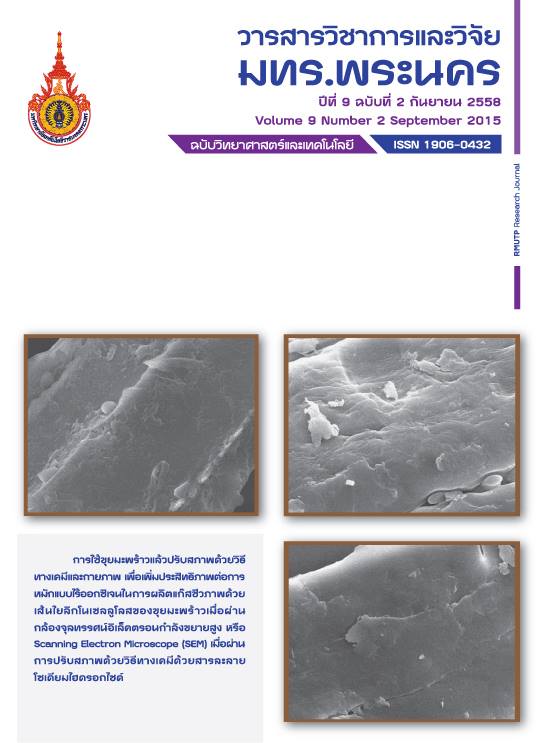การผลิตปุ๋ยหมักมูลไส้เดือนดินจากขยะอินทรีย์
Main Article Content
Abstract
บทคัดย่อ
กิจกรรมของไส้เดือนดินมีความสำคัญต่อการหมุนเวียนของอินทรียวัตถุและธาตุอาหารพืช ซึ่งส่งผลต่อโครงสร้างของดิน การผลิตปุ๋ยหมักมูลไส้เดือนดินเป็นการนำขยะอินทรีย์หลากหลายชนิดทั้งขยะอินทรีย์ในครัวเรือน พื้นที่เกษตร อุตสาหกรรม และตะกอนจากระบบบำบัดน้ำเสียมาใช้ใหม่ ทั้งนี้ปริมาณไนโตรเจน ฟอสฟอรัส และ โปรแตสเซี่ยมในปุ๋ยหมักที่ได้จะมีความแตกต่างกันตามชนิดของขยะอินทรีย์ที่ใช้ ทั้งนี้ปุ๋ยหมักมูลไส้เดือนดินจะละเอียด มีรูพรุน ระบายอากาศได้ดี มีความชื้นสูง ปัจจัยเหล่านี้จะส่งผลต่อกิจกรรมของจุลินทรีย์ การดูดซับธาตุอาหารพืชของดิน และการเจริญเติบโตของพืช การผลิตปุ๋ยหมักมูลไส้เดือนดินจึงเป็นเทคโนโลยีและกระบวนการกำจัดขยะอินทรีย์ที่ราคาถูกและเป็นมิตรกับสิ่งแวดล้อม ทั้งนี้สายพันธุ์ไส้เดือนดินที่ใช้มีส่วนสำคัญอย่างยิ่งต่อกระบวนการการผลิตปุ๋ยหมักจากขยะอินทรีย์ ทั้งนี้สายพันธุ์ไส้เดือนดินแต่ละชนิดจะส่งผลต่อกิจกรรมในกระบวนการผลิตปุ๋ยหมัก ซึ่งในประเทศไทยนิยมใช้ไส้เดือนดินสายพันธุ์ ฟีเรททิมา พีกัวนา
Abstract
Earthworms play an important role in the cycling of plant nutrients, turnover the organic matter and maintain the soil structure. The decomposition of different types of organic substrates (household waste, agro-residues, and sludge) is able to be turned into valuable vermicompost. The percentage of, nitrogen, phosphorous and potassium in vermicompost was found to increase on different types of organic waste. Vermicompost is a finely divided, peat like material with high porosity, good aeration, drainage, water holding capacity, microbial activity, enriching of nutrients and buffering capacity thereby resulting the required physiochemical characters congenial for soil fertility and plant growth. Vermicomposting is a low-technology, environmentally-friendly process used to treat organic waste. Moreover, certain species of earthworms are used to enhance the process of organic waste conversion and produce a better end product. The Earthworm species Pheretima peguana were especially used in Thailand.

